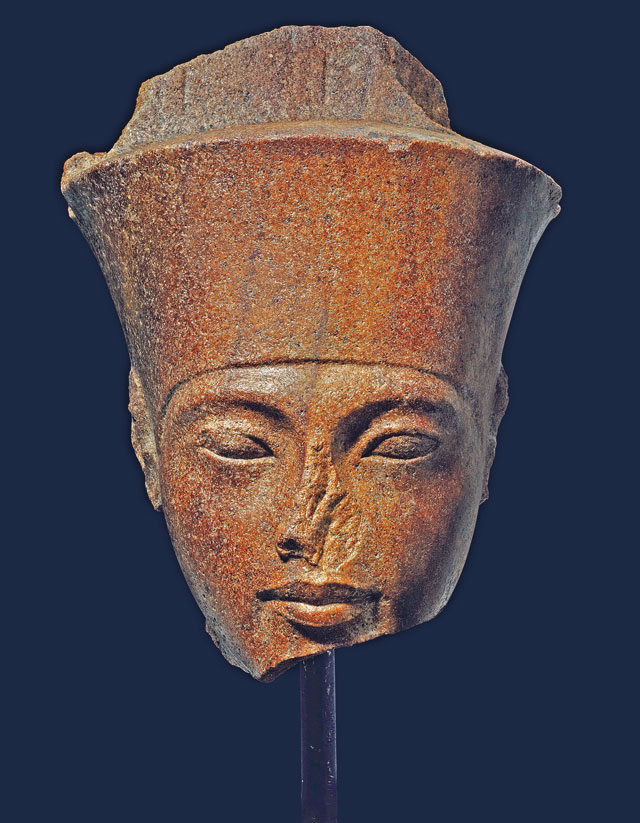Tutankhamen head sells for millions despite Egypt's protests
Updated: 2019-07-05 15:48

LONDON - A brown quartzite head of young king Tutankhamen sold at auction in London for more than 4.7 million pounds on Thursday, in the face of Egyptian demands for its return.
The more than 3,000-year-old sculpture, displayed at Christie's London auction house, shows the boy king taking the form of the ancient Egyptian god Amen.
An unnamed buyer bought the head for 4,746,250 pounds ($5.97 million), including commission and in line with the estimated price before the sale, Christie's said.
Outside, around 20 protesters stood silently and held placards that said "Egyptian history is not for sale".
Egypt has long demanded the return of artefacts taken by archaeologists and imperial adventurers, including the Rosetta Stone kept in the British Museum - campaigns paralleled by Greece's demands for the Parthenon sculptures, Nigeria's for the Benin Bronzes and Ethiopia's for the Magdala treasures.
"We are against our heritage and valuable items (being) sold like vegetables and fruit," said Ibrahim Radi, a 69-year-old Egyptian graphic designer protesting outside Christie's.
The 28.5 centimetres (11.22 inches) high piece, with damage only to the ears and nose, was sold from the private Resandro collection of Egyptian art.
Christie's said it was acquired from Munich dealer Heinz Herzer in 1985. Before that, Austrian dealer Joseph Messina bought it in 1973-1974, and Germany's Prinz Wilhelm Von Thurn und Taxis "reputedly" had it in his collection by the 1960s.
Hailing the piece as a "rare" and "beautiful" work, a Christie's statement acknowledged controversy over its home.
"We recognize that historic objects can raise complex discussions about the past, yet our role today is to work to continue to provide a transparent, legitimate marketplace upholding the highest standards for the transfer of objects."
Before the auction, Mostafa Waziri, secretary general of Egypt's Supreme Council of Antiquities, said he was disappointed the sale was going ahead, despite requests for information and protests from government officials and Egypt's embassy.
"I believe that it was taken out of Egypt illegally ... They have not presented any documents to prove otherwise," he told Reuters, saying that Egypt would continue to press the buyer and others for the work to be returned.
Staff at Christie's said they had taken the necessary steps to prove its provenance and the sale was legitimate. "It's a very well known piece ... and it has never been the subject of a claim," antiquities department head Laetitia Delaloye told Reuters.
Christie's had been in touch with Egyptian authorities in Cairo and the London embassy, she added.
Reuters
























